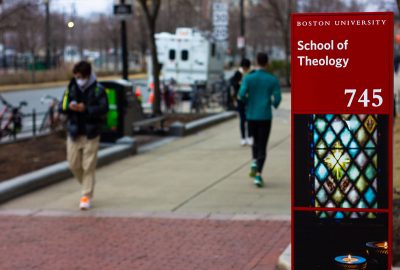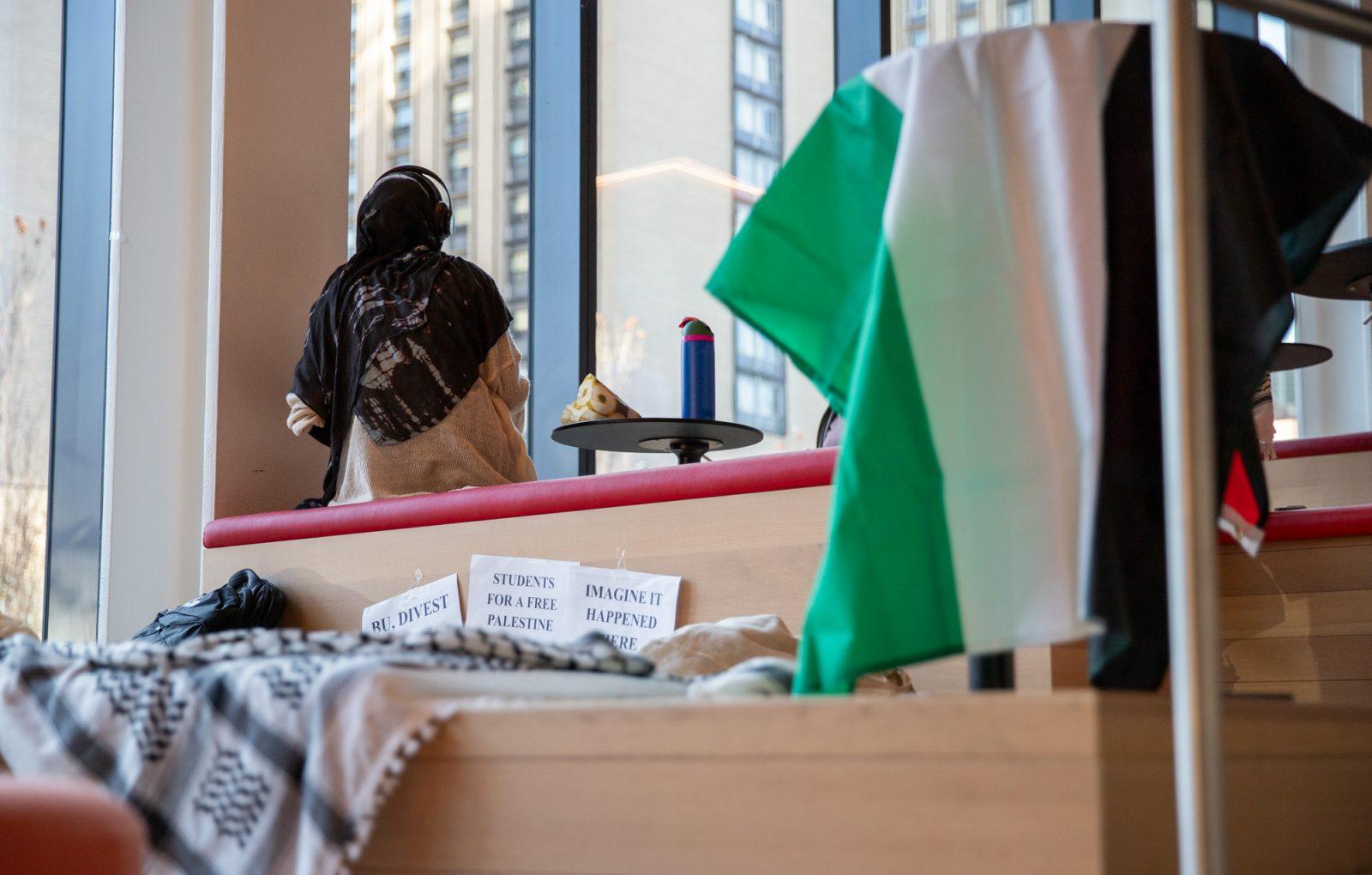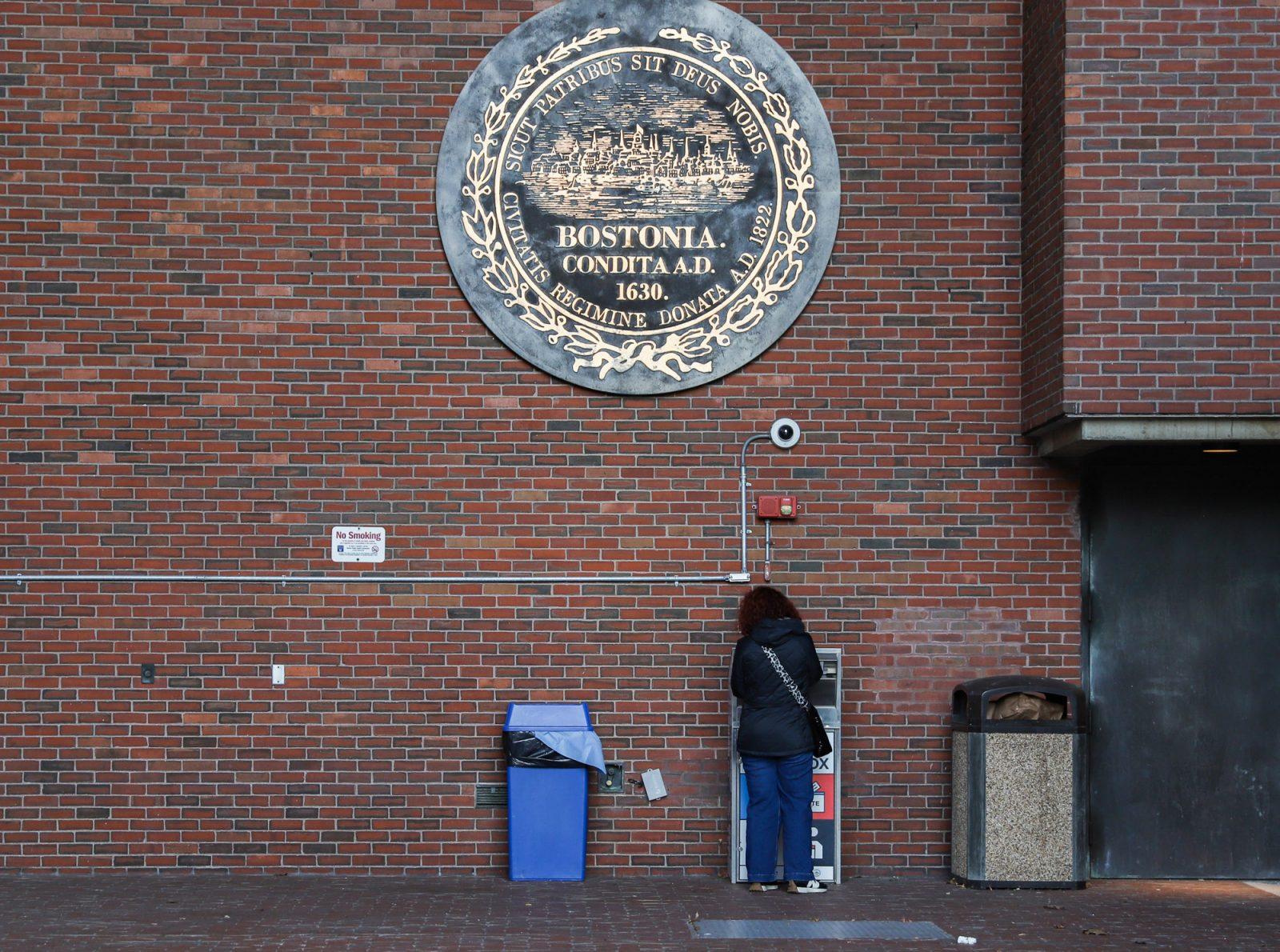
In response to the Israeli-Palestinian conflict that has pervaded Middle Eastern politics for generations, American advocacy organizations strive to provide relief to the struggle by crossing continental borders.
Seminarians for Solidarity with Palestine, a graduate student organization in the Boston University School of Theology, screened the 2012 documentary “The People and the Olive” on Monday, which records the Run for Palestine movement. This film is part of a four-part screening series that will continue through the spring semester.
Laura DuFour, a third-year graduate student in STH and co-founder of the SSP, said she believes the film could educate audiences and help people understand this global conflict.
“It’s a very complicated issue, there’s a lot going on, there’s a lot of different angles and issues and people, stories and history,” DuFour said. “I want people to hear the other side [of the issue] or a different side, just to broaden their understanding.”
The film follows several ultramarathon runners across Palestine on a five-day journey, planting olive trees for farmers throughout the territory. Olive farmers, whose market constitutes about a quarter of Palestine’s agricultural income, have experienced a loss of land and consequently, a loss of profit since the Israeli occupation beginning in 1967, according to the film.
Joseph Viola, also a third-year graduate student in STH and co-founder of SSP, said that in hosting the film screening series, the group hopes to direct attention to Palestinian conditions and expand Americans’ understanding of Israeli-Palestinian struggles.
“People want to talk about social injustices and want to stand in solidarity with people from all different identities from around the world,” Viola said. “I think it’s important just to recognize that these issues that we are talking about on campus [are] not just confined to our local community.”
Following the screening of “The People and the Olive,” 10 attendees reflected upon the film and its overarching messages of environmental activism and political strife in a brief discussion.
Audience members grappled with the inaccessibility and inequality Palestinians seem to face, many expressing their desire to connect with different nationalities on a deeper level. One issue spoken about extensively was a sense of ethical duty to aid Palestinians in crisis.
Rebecca Copeland, assistant professor of theology in STH, teaches courses with a tie to ecological themes, such as “Christianity and Climate Change” in STH’s Faith and Ecological Justice program, which co-sponsored the screening. After the screening, Copeland said in an interview she focuses on supporting events that emphasize the convergence of religious studies and environmental causes through various mediums.
“For my program, the goal of co-sponsoring something like this is to expose people to different forms of environmental activism,” Copeland said. “That making documentaries is a form of ecological activism, taking photographs, making food — all of these things can be different forms [of activism].”
SSP is composed primarily of graduate students in the Master of Divinity program at STH, which is designed for future religious leaders following the pastoral ministry education track.
DuFour, who will graduate this semester, said she intends for the film and its subsequent conversations to involve other religious studies students and create spaces to educate people about such topics.
“I wanted to focus on theology students, specifically Christian theology students, because the School of Theology is a Methodist seminary,” DuFour said. “I think it’s important that these theology students, these future pastors, reverends, ministers, et cetera, just know a little bit more about what’s going on in [Palestine].”
Deepak Kenkeremath, coordinator of Voices From the Holy Land, a collaboration of multi-ethnic, multi-faith filmmakers seeking to capture the Israeli-Palestinian conflict and co-sponsors of the event, wrote in an email that despite any religious affiliation, the allegiance of all faiths can help to humanize Palestinians and their oppression.
Kenkeremath wrote that he desires to make a lasting impact with VFHL’s film series, regardless of belief.
“We believe that all faiths call for justice and the treatment of the other as ourselves,” Kenkeremath wrote. “We would like to reach all communities and all Americans.”
In continuing the four-part series, SSP will screen “The Stones Cry Out,” “Al Helm: Martin Luther King in Palestine” and “With God on Our Side” at the end of each month this semester.




























































































































